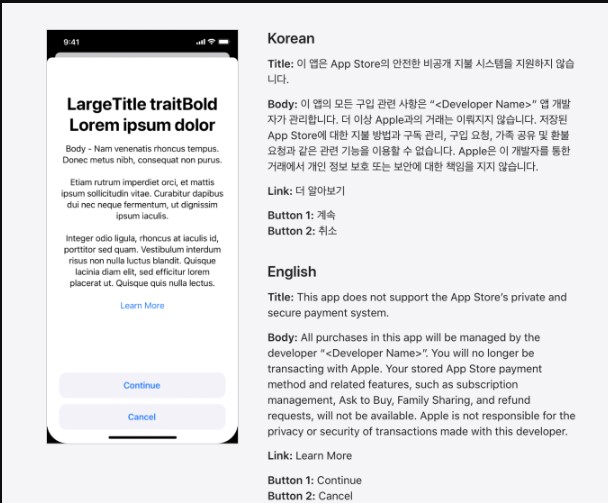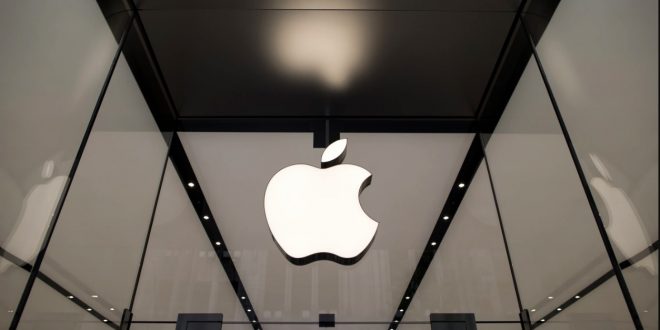After adamantly opposing the “sideloading” of alternative app stores onto the iPhone, Apple is reportedly looking to permit them with iOS 17, which will be released next year, in order to comply with European legislation. According to the Bloomberg story, Apple is considering making its camera and NFC (Near Field Communication) stack available to developers.
To date, Apple’s walled-garden strategy has required that iPhone customers only download programs from the company’s own App Store. On the other hand, Android enables users to download outside app stores on their gadgets.
According to the Bloomberg article, Apple’s sideloading project has already begun under the direction of Andreas Wendker, the company’s engineering vice president, who answers to Craig Federighi, Apple’s senior vice president of software engineering. According to reports, prominent executives including Jeff Robbin and Eddie Cue are also working on the project.
Next year, the Digital Market Act (DMA) of Europe will go into effect, and businesses will have until 2024 to comply. It’s likely that Apple is currently making preparations to comply with the new regulations, which require Big Tech to let alternative app shops on their platforms in order to provide users more options.
Due to the EU’s efforts to standardize charging connectors, Apple has already committed to adopting USB-C. Now that the DMA is approaching, this might compel the Cupertino-based corporation to permit sideloading as well.
Successful for developers?
Developers won’t have to pay Apple a 30% (or, in certain situations, 15%) royalty for in-app purchases if the tech titan opens up to other app shops. Many businesses who have questioned Apple’s cost system, such as Spotify, Tinder/Match Group, and most recently, Twitter, may be satisfied by this.
Currently, Apple permits some developers in specific areas to use third-party payment systems, such as all developers in South Korea and dating app developers in the Netherlands. They must still pay a sizable charge to Apple, though.
There is a good probability that regulators abroad will follow the DMA’s lead and Apple’s present efforts to enable sideloading in iOS 17 could be expanded to cover additional jurisdictions if the DMA forces Apple to permit third-party app stores in the EU.
This information is released as a jailbroken iOS version of the alternative Android app store Aptoide, which is situated in Portugal. Paulo Trezentos, co-founder and CEO of the business, he thinks Apple would certainly allow for independent app stores.
The new EU regulation may pressure Apple into giving up more components of its ecosystem, such as the camera, NFC stack, and browser engine, according to a Bloomberg article.
At the moment, all iPhone browsers, including Chrome and Firefox, are required to use Apple’s WebKit engine. But Apple is thinking about getting rid of that construct. To find out how other engines might function on iOS and what capabilities they would make available in other browsers, we may have to wait until Apple makes its official announcement.

Other payment businesses, in addition to Apple Pay, might be able to incorporate their services for tap-to-pay if the NFC stack is opened up. The EU, which stated in February that a standard technology for contactless payments like NFC should be available to all suppliers, has already criticized Apple. This would make it possible for rivals of Apple, like Stripe and Square, to develop their own seamless iPhone solutions.
Apple’s hesitation
Apple executives frequently express their opinions about how dangerous sideloading would be for user security. To stop people from “accidentally installing potentially malicious apps on their devices,” iOS 16 even added a developer mode. Apple’s protracted Epic battle has also centered on issues like sideloading and App Store royalties.
The corporation has made it difficult for developers to use third-party payment systems in the Netherlands and South Korea, where it was forced to slightly open its platform. It required app developers to provide consumers with detailed warnings before they utilize an alternative payment method, and in certain circumstances, Apple has forced them to submit a different app file for a specific area.
While technically abiding by local regulators’ regulations, the corporation is raising obstacles so that developers won’t change their payment method.

In a similar vein, if Apple chooses to make life tough for both developers and users in order to comply with EU regulation for iOS 17, only the most tech-savvy people will decide to sideload. Additionally, to discourage potential switchers from remaining with Apple’s App Store, the corporation might put up ads and cautions about using third-party app stores.
According to a statement from the Coalition for App Fairness, which includes companies like Basecamp, Match Group, and Spotify, reports that Apple is allowing sideloading “are an admission that they have a chokehold on the competition.” The coalition is fighting Big Tech platforms like Apple and Google for fairer distribution.
It is obvious that Apple will only relinquish control over how apps are downloaded onto iOS devices and their use of gatekeeper authority within the App Store in response to pressure from regulators. The Digital Markets Act, which was passed by the European Union, is pressuring Apple to act, and strict enforcement of the law is essential to leveling the playing field for developers in the mobile application ecosystem, it said.
The group pleaded with American legislators to take notice and swiftly enact the Open App Markets Act (OAMA), which would compel Apple and Google to permit third-party app stores, sideloading, and other payment methods. Tim Sweeney of Epic also into the fray, pleading with Congress to take action and follow Europe’s example.
Mark Gurman, writing for Bloomberg, says Apple is preparing to open iOS to competing app stores – but only in Europe.
This would leave American developers in serfdom in the nation where Apple was founded.
Congress must pass the Open Apps Market Act! https://t.co/GnCChgi0hX
— Possibly Tim Sweeney (@TimSweeneyEpic) December 13, 2022
 Tech Gadget Central Latest Tech News and Reviews
Tech Gadget Central Latest Tech News and Reviews




